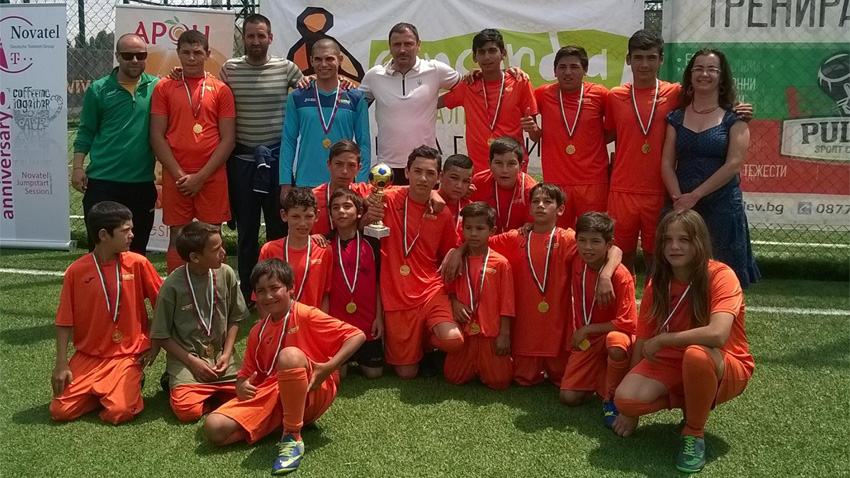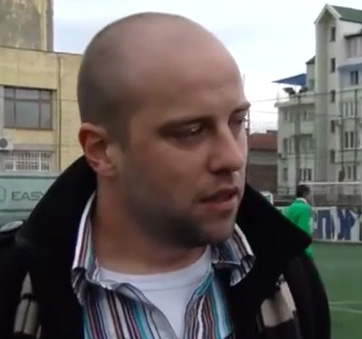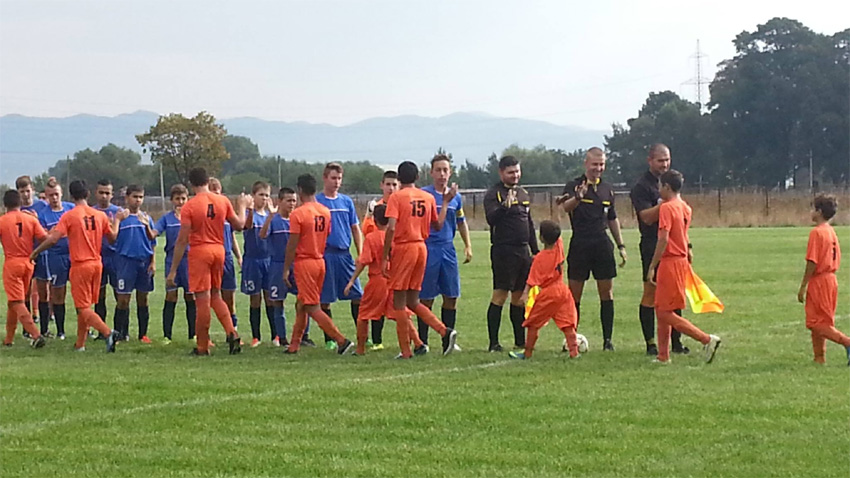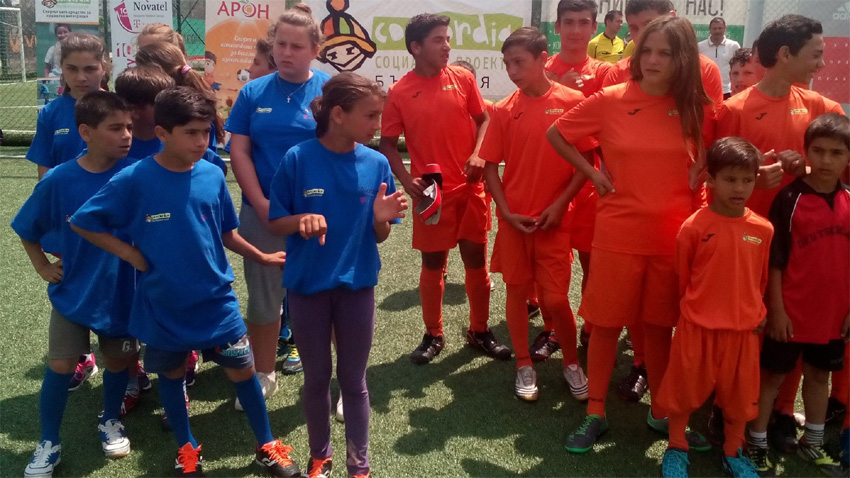For two years, a children's football club has been giving an open lesson to the Bulgarian society on tolerance and mutual acceptance. Respect and mutual help are the magic words, thanks to which ethnic Roma children and children from poor Bulgarian families have formed a strong team.
The Concordia Bulgaria Foundation decided to establish a football club after having successfully organized an international children's football tournament three years ago. For this purpose, a professional coach was hired and 40 children from the Roma neighborhoods and the foundation’s social institution for children without parental care were selected. The municipality has provided a stadium for free. Thus, in the past year the team, consisting of 70% Roma and 30% Bulgarian children, for the first time took part in a children’s championship, placing 9th.

 “Our team is comprised of children from our social institution, Roma children from the Orlandovtsi and Hristo Botev neighborhoods in Sofia and children from the Hadzhi Dimitar quarter,” Petar Krumov from the foundation says. "Initially the children were separated in several groups and it took us half a year to create a team of them so they can acquire social skills. But today I can gladly say that they are all friends and have begun to support themselves not only on the pitch. They even created a group in social networks and go out together outside of the institution and outside the neighborhood. The other positive thing is that the children of our team started to maintain very good contact with children from other teams without tension and are very well received.”
“Our team is comprised of children from our social institution, Roma children from the Orlandovtsi and Hristo Botev neighborhoods in Sofia and children from the Hadzhi Dimitar quarter,” Petar Krumov from the foundation says. "Initially the children were separated in several groups and it took us half a year to create a team of them so they can acquire social skills. But today I can gladly say that they are all friends and have begun to support themselves not only on the pitch. They even created a group in social networks and go out together outside of the institution and outside the neighborhood. The other positive thing is that the children of our team started to maintain very good contact with children from other teams without tension and are very well received.”

Petar Krumov cannot say who is responsible for ethnic tension and fights like the recent case in Asenovgrad. He adds that for his eight-year activity in the foundation he has seen aggression from both ethnic Roma and Bulgarians but he has been pleasantly surprised by the parents of the children in the team.
“I thought we would have problems with the parents, but these people turned out to be of great help to the team," Petar Krumov says. “When needed, they help us maintaining the pitch, solving problems and always want to be fully involved in everything we do. Most of these children do not have very high grades in school, but they have not dropped out and the parents are also responsible for that. We maintain continuous contact with them and we also help them with learning. When a child in the team needs pedagogical help, we provide teachers for them. But nothing happens without parents' consent.”
Sport remains the best means of overcoming ethnic prejudices, Petar Krumov believes.

“In sports, it is proven that ethnicity and religion are irrelevant and only personal qualities matter,” he says. “If a player has darker skin complexion, it does not make him a worse player and other people and spectators respect him only because of his qualities. That is why sport is one of the few options for socializing these children. First of all, we want to teach them hard work, teamwork, fair play. Winning is not as important as playing in the best way you can, respecting the opponent, knowing that this is an environment that can support you together with the family. We also motivate children to study, as one of the rules to be part of the team is not to drop out of school.”
In the new season, Concordia Club has new goals - entering the top six of the children’s championship and creating a second team of children born in 2004.
English: Alexander Markov"The socio-political processes among the Bulgarian communities in Albania and Kosovo from the early 19th century to the present, and the influence they have on the demographic development and territorial distribution of our compatriots in these..
Today we mark the 105th anniversary of the birth of academician Valeri Petrov - poet, novelist, screenwriter, playwright and translator. Born in Sofia on 22 April 1920 under the name of Valeri Nissim Mevorakh, he graduated in medicine from Sofia..
President Rumen Radev's "Support a Dream" charity initiative has attracted the support of musicians, stylists, designers and donors, the head of state's press secretariat said. A prom hosted by the president each spring brings together high school..
The FameLab International Science Communication Competition aims to discover, train and give a platform to the world’s most promising new scientists. The..
"United We Stand" - Bulgaria's national motto - will be put into action on May 8 by the Bulgarian community in New York City, amid the realities of the..
"We may be 10 hours behind Bulgaria, but our compatriots on the West Coast of the United States deeply cherish everything that connects them to Bulgaria..

+359 2 9336 661
